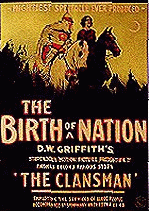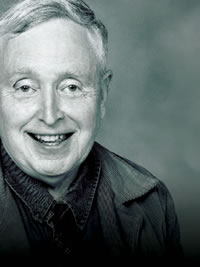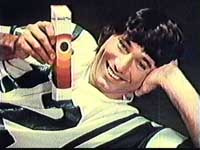Think of this as Volume 16, Number 2 of A-Clue.com, the online newsletter I've written since 1997. Enjoy.

Think about it.
-
The South and the “Lost Cause” were culturally ascendant after the Civil War, even as the grave closed over the Confederacy.
-
Populist-fueled racism became a popular cultural expression after progressives captured the flag in the 1890s. See “The Birth of a Nation” for a fine example from that era.
-
The 1930s and 1940s saw a very conservative culture, which you can see in the movies of that era. I might point specifically to the Andy Hardy-Judy Garland movies for its truest expression.
-
The 1960s were all about the rise of Leftist culture. Funny how the sideburns suddenly start growing across the establishment after Nixon won in 1972.
Today I see another turn happening all around me. My kids are a lot more like those of the 1930s than they're like me. Even the “Occupy Wall Street” movement was well-behaved. It was the police over-reaction to peaceful protest that said otherwise. And did you notice the lack of reaction to that over-reaction? In a cultural sense, we're very respectful of authority these days.

Tebow is the ultimate expression of muscular Christianity. He is a man who lives his values, and they're values that even Rick Santorum would approve of. He defies our expectations in a throwback sort of way, a run-first quarterback throwing himself into the line. Sort of like a Republican Muhammad Ali, and I'm very afraid he may wind up the same way, a victim of repeated head trauma, old before his time.
I'm seeing similar expressions across the culture. What are the biggest movie hits of the last few years? Why, it's the “Twilight” franchise, in which a young girl swoons before a strong, masculine presence. Our most popular musicians, like Jay Z and Bruno Mars, are self-consciously consumer products, careerist, careful in how they live, careful with their money.
What I find most fascinating about the Tea Party is not how reactionary it's been, but how ineffective. The Congress and governors elected by that movement in 2010 are now almost universally mocked, much as hippies were derided 40 years ago. We don't need Spiro Agnew, they write their own lines. Here's one – will someone get this guy a joint and a paisley flag, please?
It makes sense. Culture tends to act best in opposition. If we don't have anything to be angry about, we really do stagnate.
You know what the fellow said – in Italy, for thirty years under the Borgias, they had warfare, terror, murder and bloodshed, but they produced Michelangelo, Leonardo da Vinci and the Renaissance. In Switzerland, they had brotherly love, they had five hundred years of democracy and peace – and what did that produce? The cuckoo clock.
Yes, I'm over-generalizing, and so was Welles. But you get the point. Culture acts in reaction to what is going on around it, especially in America. When politics zigs, culture zags, maybe because middle class values are so busy zigging.

What I found, during this real-time examination of the history taking place before me, is that American politics moves in generational arcs for a reason, and that era is, at its center, economic. Economic forces that feel threatened will, while still riding high, seize control of the political wheel, in order to cement their power against the rising tide.
But that tide overwhelms them. The South's desire for an economy based on human sweat was trumped by northern manufacturing. Wall Street's desire for an economy of monopolies and trusts was trumped by the need for reliable prices on manufacturing inputs. Mass production, in turn, finally found it could only succeed with mass consumption, that too many goods and too few buyers meant deflation and ruin.
Similarly, in the 1960s, manufacturers like Robert McNamara of Ford Motor ruled our world, but were trumped by the needs of the rising technology and content economies. And in our time, oil billionaires bought our politics just as it was becoming obvious that alternative supplies of energy were needed.
What Doc C saw as central I have concluded was secondary. Economics drives the train. What I first wrote of several years ago as “The War Against Oil” is really just a new economy being born. It does n
You want a good analogy to Tim Tebow? OK. Joe Namath. And no matter what happens in Foxboro this weekend, I guarantee you that Madison Avenue will run with that, and score.
No one understands zeitgeist like an ad man.









